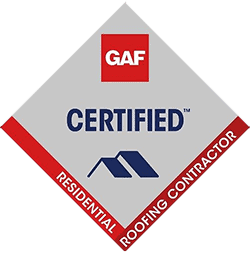Top Tips for Avoiding Common Roofing Scams!
The booming roofing industry in Beaumont and Port Arthur Texas attracts numerous service providers, making it vulnerable to unscrupulous individuals who want to take advantage of unsuspecting homeowners.
In such a vital sector, awareness is key.
Recognizing common roofing scams can save you from financial loss and ensure your home remains protected from the elements.
Here is what you need to know to protect yourself against roofing scams in Beaumont and Port Arthur.
What Are Some Common Roofing Scams?
Roofing scams are a growing concern, especially in circumstances when homeowners urgently need repairs, such as after severe storms or natural disasters.
Scammers often exploit this urgency, targeting property owners who may feel pressured to act quickly to protect their homes.
Here are some of the most common roofing scams and how they work:
To avoid falling victim to these scams, thoroughly research roofing contractors, check reviews, verify licenses and insurance, and get multiple quotes before committing to a project.
Additionally, be wary of high-pressure tactics or deals that seem too good to be true—they often are.
Remember, protecting your home starts with protecting yourself from dishonest practices.
How Can Homeowners Avoid Roofing Scams?
Protecting your home starts with making informed decisions, especially regarding roof repairs or replacements.
Scammers often target homeowners who feel the pressure of urgent repairs, particularly after storms or natural disasters; however, taking the proper precautions can help you steer clear of fraudulent practices and ensure that your roofing project is completed by trustworthy professionals.
From researching companies to insisting on proper documentation, these strategies can save you from costly mistakes and give you peace of mind.
Below are essential tips every homeowner should follow to avoid roofing scams:
Conclusion
Navigating roofing projects in Beaumont and Port Arthur requires diligence and awareness to avoid falling prey to scams.
Researching contractors, insisting on proper documentation, and avoiding high-pressure tactics can help you make informed decisions that protect your investment.
Remember, verifying credentials and comparing options ensures the integrity of your roof and your peace of mind.
Stay vigilant and you can confidently choose a trusted roofer.
Key Takeaways
FAQs
1. What are the warning signs of a roofing scam?
2. How can I verify a roofing company's legitimacy?
3. Is it essential for roofing companies to be licensed in Texas?
4. What should a roofing contract include?
5. How can unsolicited door-to-door offers be managed?
6. Why is verifying manufacturer certifications crucial?
7. What does contractor insurance cover during roofing work?
8. How can high-pressure sales be handled?
9. What questions should I ask a roofer's previous clients?
10. Why should I consider multiple roofing estimates?
- Storm Chasers: These individuals or groups often appear uninvited in neighborhoods immediately after storms, claiming to have noticed damage to your roof. They might pressure you into signing a contract on the spot, only to leave the work incomplete or poorly done after receiving payment. Some may even fabricate damage to justify unnecessary repairs.
- High Down Payments: Scammers may demand large upfront payments with the promise of prioritizing your project or securing materials. Once they have the money, they may delay work indefinitely, provide subpar service, or disappear altogether.
- Mysterious Low Bids: These scammers often cut corners by offering unrealistically low prices to win contracts. They also frequently use low-quality materials or unskilled labor. They might also surprise you later with hidden fees or additional charges, leaving you with a poorly repaired roof and a much larger bill than expected.
- No-Deductible Scams: Some contractors claim they can "waive" or "cover" your insurance deductible, which might sound like a great deal. In fact, this practice is illegal in Texas and could result in insurance fraud. They may inflate the cost of repairs or submit false invoices to your insurance company, leaving you at risk for legal or financial repercussions.
- Free Roof Inspections with a Catch: Some contractors offer "free inspections" to get a foot in the door, but they may use this opportunity to exaggerate or invent damage. They could then pressure you into costly, unnecessary repairs or even insist on a complete roof replacement.
- Temporary Repairs Without Follow-Up: Scammers may offer temporary fixes to "tide you over" until they can complete the job, only never to return. These quick fixes often worsen the problem, leading to more significant damage and expenses later.
- Research Roofing Companies Thoroughly: Taking the time to research is one of the most effective ways to protect yourself. Start by verifying the legitimacy of roofing companies in your area. Read online reviews and ratings on platforms like Google and the Better Business Bureau, and ask trusted friends or family members for recommendations. Pay attention to how long the company has been in business, especially its track record in Beaumont and Port Arthur. The longer their history, the more likely they are to be a good choice.
- Beware of Unsolicited Offers: Be cautious of contractors who show up uninvited, often after storms, claiming to notice damage to your roof. Scammers use high-pressure tactics, urging you to act quickly on supposed urgent repairs. Reputable roofers rarely solicit door-to-door. If approached, ask for business credentials, then take the time to verify their legitimacy before committing.
- Insist on Written Estimates and Contracts: A precise, written estimate protects both you and the contractor by outlining the project scope, timeline, costs, and payment terms. Always insist on a detailed estimate and a formal contract before any work begins. Contracts should also include warranty information for materials and labor. Avoid signing anything you are uncomfortable with, as unclear or overly vague agreements are major warning signs.
- Check for Licensing and Insurance: Unlike some states, Texas does not require roofing contractors to have a state license. This makes verifying the credentials of any contractor you are considering even more critical. Many reputable contractors still hold licenses or certifications and you should confirm they carry insurance for both liability and workers' compensation. Doing so protects you in case of accidents or damage during the project.
- Avoid High-Pressure Sales Tactics: Scammers often use high-pressure sales techniques, such as claiming a deal is only available for a limited time or exaggerating the urgency of repairs. Don't fall for this tactic. Take your time to get multiple estimates, evaluate your options, and make an informed decision based on trust and value, not fear or haste.
- Verify Manufacturer Certifications: Many respected roofers have manufacturer certifications confirming their expertise in installing specific roofing materials and systems. These certifications indicate skill and reliability. Always ask for proof of such certifications and, if needed, verify their legitimacy with the manufacturer directly.
- Request References and Inspect Previous Work: Ask potential contractors for references and examples of past projects in Beaumont, Port Arthur, or nearby areas. Speaking to previous clients can provide insight into the company's reliability, communication, and work quality. Whenever possible, visit completed projects to inspect the workmanship firsthand.
- Look for Local and Established Contractors: Choosing a local contractor with an established presence in the community adds an extra layer of protection. Local contractors are more likely to honor warranties, provide ongoing support, and maintain a reliable standing in your area. Avoid out-of-town contractors who may disappear once the job is completed.
- Be Wary of Free Inspections with Strings Attached: While free roof inspections can be helpful, some contractors use them as an opportunity to exaggerate damage or pressure you into unnecessary repairs. Ensure that any inspection comes with clear documentation, including photos of damage, and seek a second opinion if you have doubts.
- Always verify roofing companies' legitimacy through thorough research.
- Be cautious of unsolicited offers and high-pressure sales tactics.
- Insist on detailed written estimates and signed contracts.
- Check for proper licensing, insurance, and manufacturer certifications.
- Request references and review past work to confirm reliability.
- Beware of unsolicited door-to-door sales, pressure to sign immediate contracts, and demands for large upfront payments.
- Check online reviews, ask for local recommendations, confirm insurance, and research their business history.
- While Texas does not mandate licensing for roofing, many respected contractors carry voluntary certifications and local licenses.
- It should detail the work scope, costs, payment terms, timeframe, and warranty clauses.
- Request credentials, verify their claims independently, and take time to research before making any commitments.
- Certifications confirm a roofer's competency with specific materials and protect you from substandard installations.
- Contractor insurance should cover liability for property damage and workers' compensation for onsite job injuries.
- Ask for time to consider, compare multiple estimates, and focus on value rather than urgency.
- Inquire about their satisfaction with the work quality, the contractor's reliability, and the overall customer service experience.
- Multiple estimates help compare pricing and services to ensure you make a well-informed decision.
Subscribe to High & Tight Roofing's Blog



Comments